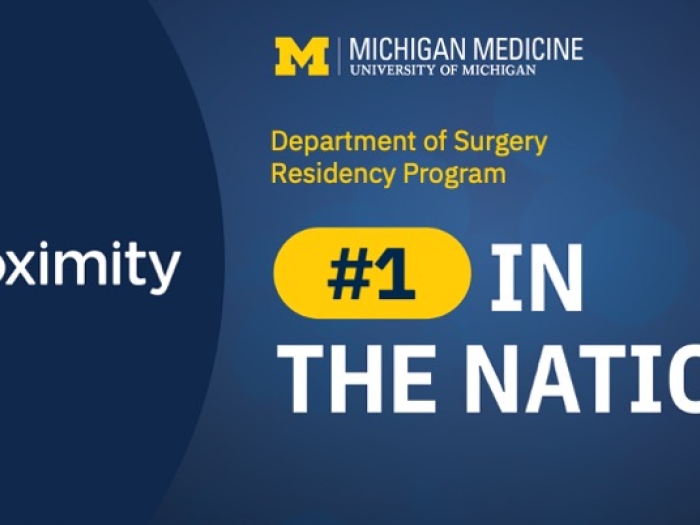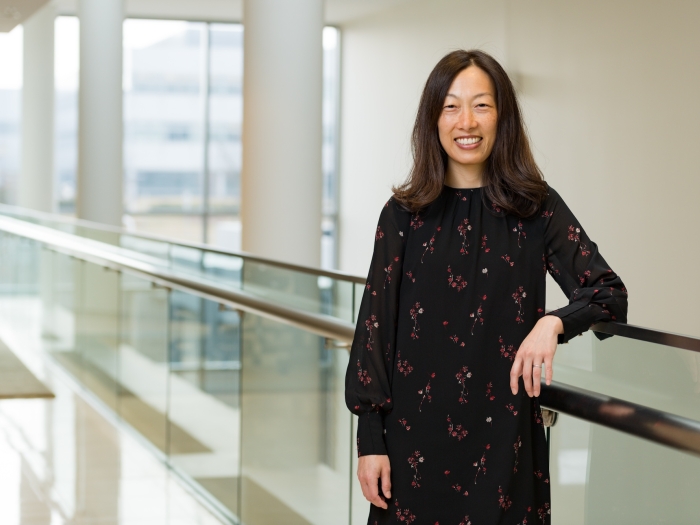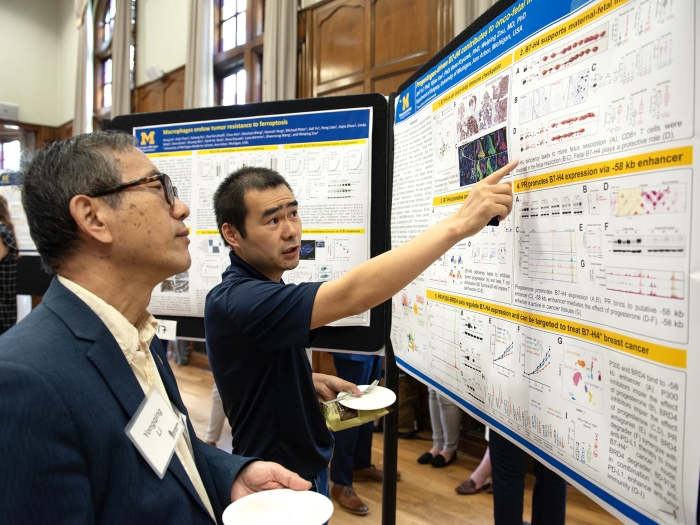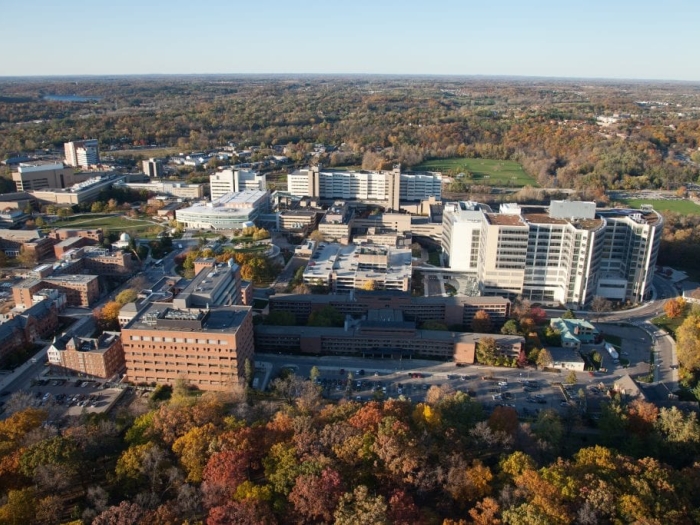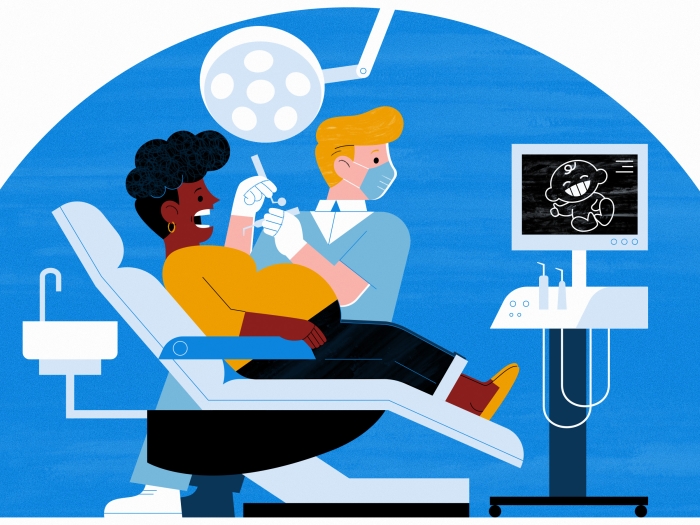
In the lab, whether we are studying tissues or managing data, we are thinking of the patient whose life will be bettered by the research we conduct. As one of the most successful oral and maxillofacial surgery/ hospital dentistry units in the country in securing external funding, we bring deep resources and diverse skills to bear on solving the most vexing surgical dilemmas.
Through our research, we’re breaking new ground in regenerative medicine, with R01-funded work in cell-based therapeutic devices and products, as well as several active clinical trials in sleep apnea, TMJ, and speech rehabilitation for oral cancer patients. Our institution also houses the Maxillofacial Oncology and Reconstructive Surgery National Database for oral cancer data.
Our dedicated research labs, include a microsurgical training lab, as well as basic and translational scientific labs. All our faculty conduct research, a demonstration of our commitment to generating new knowledge, with one faculty member devoting 60 percent of his time to research — a unique position that broadens our understanding of the intersection of basic science and clinical practice.
Our investigators are recognized leaders in the field, and have served as chairs of multiple national and international committees. We are also chairs of research interest groups in oncology, reconstruction, and craniofacial surgery and biotechnology advisor boards and foundations in addition to a UM spin-off biotechnology company, Tissue Regeneration Systems.
Our research efforts range from wet laboratory basic research to randomized prospective clinical trials, a case-control observational study, and a national database in oncology.
- Oral health-related cardiovascular effects: investigation of the impact of oral hygiene and periodontal disease on the association with community-acquired infective endocarditis
- Tissue engineering/Regenerative medicine: development of engineered tissue for intraoral grafting to treat facial disfigurement in patients in need of oral tissue
- Cell-based therapeutics: development of an osteo-inductive coating for biodegradable scaffolds for use with bone tissue engineering
- Novel TMJ treatments: investigation of maxillomandibular advancement for patients who are refractory to CPAP; as well as the use of botulinum toxin A in the treatment of myofascial pain associated with TMJ dysfunction
- Cancer care: optimization through evidence-based data driven by personalized patient decisions
Our faculty members conduct research on several aspects of surgical education. The Microsurgical Training Lab delivers advanced vascular and neural microsurgical training to residents and specialists from around the world.
Our section houses the Maxillofacial Oncology and Reconstructive Surgery National Database (MORCOG), a data warehouse for head and neck cancer that allows surgeons and oncologists at partner institutions across the country to share data to improve treatment.
We aim to improve the care of patients suffering with facial pain and TMJ disorders and have a quality assurance program to monitor our outcomes and offer surgery to those most likely to benefit. Our studies focus on improving quality of life through carefully chosen treatments. We have partnered with the chronic pain and fatigue research center to identify factors involved in facial pain conditions. We study new technologies including neurophysiological monitoring to reduce the risk of facial nerve injuries during surgery.
Regenerative medicine is a new frontier in surgical reconstruction that has the potential to improve patients' quality of life. Efforts include ongoing studies to evaluate a novel osteo-inductive coating for biodegradable scaffolds, such as a vascularized mandible for use in reconstructive surgery. We completed construction of a cGMP clean room facility for the manufacture of human tissue to be used in FDA-approved clinical trials. We have the only certified cGMP facility at the University of Michigan, making it a huge research asset for tissue engineering.
Your contribution helps us research medical breakthroughs, make medicine more inclusive and train the next generation of surgical leaders.
